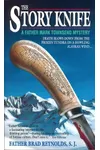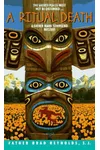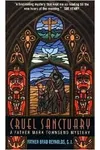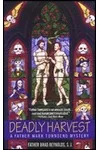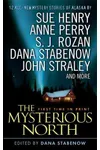Picture a Jesuit priest weaving tales of mystery and cultural reverence against the rugged backdrop of the Pacific Northwest and Alaska—meet Brad Reynolds! This American author, born in 1949, has captivated readers with his Father Mark Townsend series, blending suspense with a deep respect for native Alaskan life. His unique journey from priesthood to novelist makes his stories as compelling as the landscapes he describes.
Reynolds’s work isn’t just about solving crimes; it’s a heartfelt ode to the indigenous cultures he came to know during his time in Alaska. With over 300 articles in prestigious outlets like National Geographic, his storytelling bridges fiction and reality, inviting readers into a world where social justice and cultural preservation take center stage.
The Making of Brad Reynolds
Born in 1949, Brad Reynolds grew up with a curiosity for the world that led him to the Jesuit priesthood. His early years in Alaska, serving as a priest and immersing himself in native communities, shaped his perspective and fueled his writing. Reynolds’s time in the Alaskan tundra wasn’t just a job; it was a cultural education that inspired his lifelong commitment to storytelling. After moving to Portland, Oregon, where he served as executive assistant to the Jesuits’ Provincial, he began channeling his experiences into fiction, debuting with a mystery novel that felt as authentic as his non-fiction work.
Brad Reynolds’s Unforgettable Stories
Reynolds’s Father Mark Townsend series, spanning four novels from 1996 to 1999, is the heart of his literary legacy. The series follows Father Mark Townsend, a Jesuit priest in Washington State, whose deep understanding of Alaskan native cultures mirrors Reynolds’s own. In The Story Knife (1996), Townsend investigates a Seattle murder tied to an Eskimo artifact, unraveling greed and betrayal in a tale rich with Alaskan lore. Ritual Death (1998) dives into tensions between the Swinomish tribe and locals in LaConner, Washington, blending mystery with cultural nuance.
Cruel Sanctuary and Deadly Harvest (1999) further showcase Reynolds’s knack for weaving social issues into gripping plots. In Deadly Harvest, Townsend uncovers a scam disguised as a religious movement, highlighting the exploitation of Latino farm workers. Reynolds’s style is vivid yet introspective, with a pacing that reflects his priestly patience—though some readers note it can feel uneven. His novels aren’t just whodunits; they’re a call to respect indigenous heritage, drawing from his National Geographic articles that vividly captured native Alaskan life.
Beyond fiction, Reynolds penned over 300 articles for magazines like Alaska, America, and American Scholar, often accompanied by his own photographs. His non-fiction work, grounded in his Alaskan experiences, complements the cultural depth of his novels, making him a multifaceted storyteller.
Why Brad Reynolds Matters
Brad Reynolds’s work stands out for its authentic portrayal of native Alaskan and Pacific Northwest cultures, a rarity in the mystery genre. His novels offer more than suspense; they challenge readers to consider the impact of corporate greed and prejudice on indigenous communities. As a Jesuit priest, Reynolds infused his stories with a moral compass, advocating for justice and cultural preservation. His influence, though niche, resonates with readers who value stories that educate as much as they entertain.
In 2006, Reynolds served as artist-in-residence at Gonzaga University, further cementing his role as a cultural bridge. His legacy lies in his ability to humanize marginalized voices, making his work a quiet but powerful force in American literature.
- Born: 1949
- Key Works: The Story Knife, Ritual Death, Cruel Sanctuary, Deadly Harvest
- Notable: Over 300 articles in National Geographic and other publications
Snag The Story Knife and dive into Brad Reynolds’s thrilling blend of mystery and cultural reverence!
